detail profile j c3 balio bressane
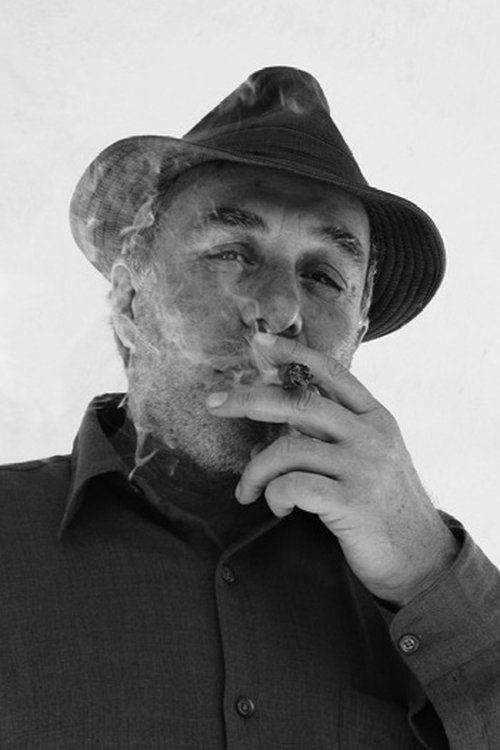
Júlio Bressane
Julio Bressane
atau dikenal sebagai
Riwayat Hidup
Júlio Eduardo Bressane de Azevedo (Rio de Janeiro, February 13, 1946 ) is a Brazilian filmmaker and writer.
A representative of the Brazilian cinema marginal, he began making films as an assistant director of Walter Lima Jr.
, in 1965.
In 1967, Bressane debuted as director with Face to Face, being selected for the Festival of Brasilia.
In 1970, he founded Belair Movies in company with fellow filmmaker Rogério Sganzerla.
They chose a model of making films and low-cost production and thereby managed to run six feature films in just six months.
He came into exile in London in the early 1970s, but returned to Brazil several years later and made one film after another, using slapstick and debauchery as its main features.
An acclaimed film of this period was the provocative Tabu, released in 1982.
Critics consider Bressane the most scholarly of the Brazilian film directors, and his work is notable for the diversity of its narrative language.
Another feature of his filmography is the comprehensive approach to historical and literary characters.
He is also noted by his low-budget, short-time shootings, with an average of 11 to 14 days to make and edit a film.
Description above from the Wikipedia article Júlio Bressane licensed under CC-BY-SA, full list of contributors on Wikipedia.
Info Pribadi
Peran Yang Di Mainkan Júlio Bressane
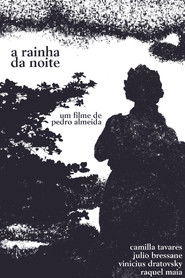 A statue steps down from the...
A statue steps down from the...The Queen of the Night 2023
A statue steps down from the pedestal and sets out in search of her Creator, the cold Queen of the Night. In the urban night, she encounters mysterious figures that disappear like shadows. Freely inspired by characters from Mozart's opera, The Magic Flute.
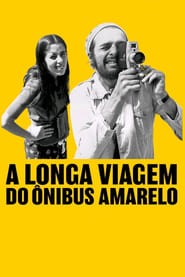 For this behemoth Bressane took his...
For this behemoth Bressane took his...The Long Voyage of the Yellow Bus 2023
For this behemoth, Bressane took his opera omnia and edited it in an order that first adheres to historical chronology but soon starts to move backwards and forward. The various pasts – the 60s, the 80s, the 2000s – comment on each other in a way that sheds light on Bressane’s themes and obsessions, which become increasingly apparent and finally, a whole idea of cinema reveals itself to the curious and patient viewer. Will Bressane, from now on, rework The Long Voyage of the Yellow Bus when he makes another film? Is this his latest beginning? Why not, for the eternally young master maverick seems to embark on a maiden voyage with each and every new film!
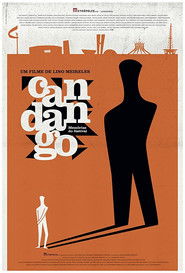 In 1965 a year after the military...
In 1965 a year after the military...Candango: Memoirs from a Festival 2020
In 1965, a year after the military coup in Brazil, an oasis of freedom opened in the country's capital. The Brasília Film Festival: a landmark of cultural and political resistance. Its story is that of Brazilian cinema itself.
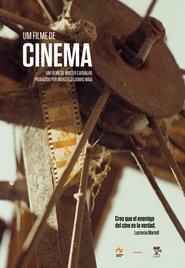 An abandoned tumbledown theater in the...
An abandoned tumbledown theater in the...About Cinema 2015
An abandoned tumbledown theater in the outback of Paraíba state is the initial setting of a film about cinema, which explores the testimonials of the novelist and playwright Ariano Suassuna and other filmmakers such as Ruy Guerra, Julio Bressane, Ken Loach, Andrzej Wajda, Karim Ainouz, José Padilha, Hector Babenco, Vilmos Zsigmond, Béla Tarr, Gus Van Sant and Jia Zhangke. They all respond to two basic questions: why do they make movies and why do they serve the seventh art. The filmmakers share their thoughts about time, narrative, rhythm, light, movement, the meaning of tragedy, the audience‘s desires and the boundaries with other forms of art.
 Made for the Venice Film Festivals 70...
Made for the Venice Film Festivals 70...Venice 70: Future Reloaded 2013
Made for the Venice Film Festival's 70th anniversary, seventy filmmakers made a short film between 60 and 90 seconds long on their interpretation of the future of cinema.
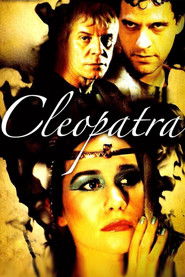 The great battles are the backdrop...
The great battles are the backdrop...Cleopatra 2007
The great battles are the backdrop for the unfolding of the Egyptian Queen's personal life. The strategy of Cleopatra is to seduce the Roman General Julius Caesar and Mark Antony to protect their civilization.
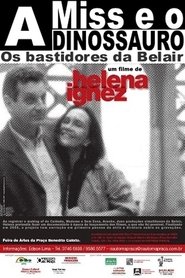 A short documentary on Belair an...
A short documentary on Belair an...A Miss e o Dinossauro 2005
A short documentary on Belair, an independent Brazilian film company that lasted for only five months in 1970.
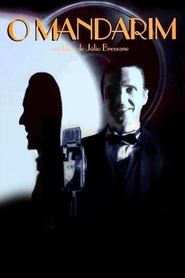 The history of Brazilian popular music...
The history of Brazilian popular music...The Mandarin 1995
The history of Brazilian popular music in the 20th Century, focusing specially on the life and works of intriguing singer Mário Reis, a loner who, with his special way of singing - whispering and softly saying the words - in a time when singers with potent voices ruled, was in a way a forerunner of Bossa Nova style.
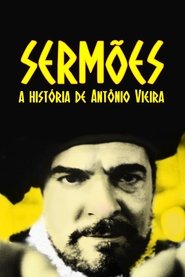 Based upon the life story of...
Based upon the life story of...Sermões 1989
Based upon the life story of Father Antonio Vieira, born in Lisbon in 1608 and deceased in Salvador, Bahia, in 1697. He's considered the first Brazilian writer and one of the most important aesthete of linguistic and of the Portuguese language of all times, a master in the art of metaphor, of verbal relations and analogy. He was persecuted and condemned by the Portuguese Court of Inquisition due to his position against native slavery, against the intolerance to the Jewish people and to the colonial politics of exploration.
 A dysfunctional family composed of a...
A dysfunctional family composed of a...A Familia do Barulho 1970
A dysfunctional family, composed of a prostitute and two gay men, one strong and the other fragile and stupid, lives a routine life in Rio de Janeiro. When the slut threatens the other two to stop supporting them, they decide to find an odalisque as an alternative to keep their easy life.
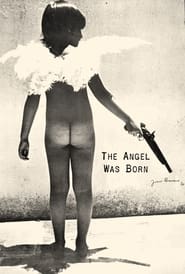 Santamaria and Urtigo are two bandits...
Santamaria and Urtigo are two bandits...The Angel Was Born 1969
Santamaria and Urtigo are two bandits on the run, one is white, the other black. Santamaria is a mystical visionary and believes in the imminent coming of a purifying angel. Urtiga, his inseparable companion, is a simple-minded and ingenious man who follows Santamaria around and participates in the crimes he commits. The two bandits take over a house after kidnapping its owner and his girlfriend.
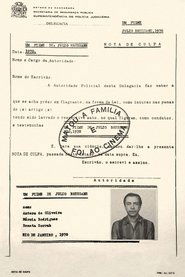 A man living with his parents...
A man living with his parents...Killed the Family and Went to the Movies 1969
A man living with his parents in a low middle-class apartment in Rio de Janeiro coldly stabs them with a razor and then goes to the movies. Marcia, a rich and dissatisfied young woman, takes advantage of a trip from her husband to go to her home in Petrópolis, where she receives a visit from an old friend, Regina.
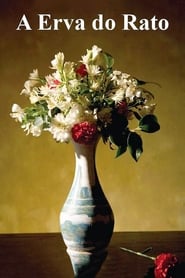 The names of the characters are...
The names of the characters are...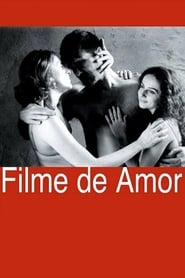 Three friends Hilda Matilda and Gaspar...
Three friends Hilda Matilda and Gaspar...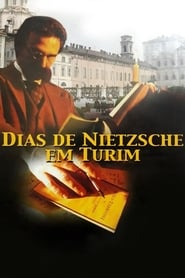 A cinematographic essay without dialogues about...
A cinematographic essay without dialogues about...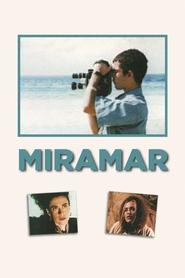 Story with some autobiographical touches taken...
Story with some autobiographical touches taken... In Rio de Janeiro after an...
In Rio de Janeiro after an... The fictional encounter in Rio de...
The fictional encounter in Rio de... First film by Julio Bressane shot...
First film by Julio Bressane shot... The story of a civil servant...
The story of a civil servant...